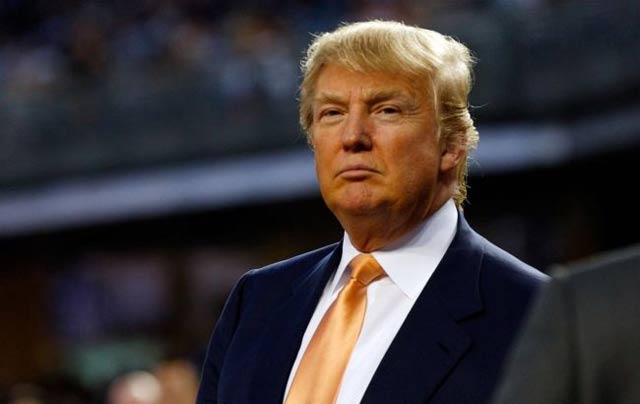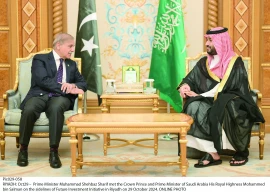
According to the unnamed official quoted by Politico Magazine, possible sanctioning is part of an overall regional strategy that he said has put Pakistan ‘on notice’ that “business as usual as it has been up to now is over”.
Trump, in a nationally televised address Monday night, announced that he would deploy more additional troops to Afghanistan, bolstering the Afghan military in its fight against the Taliban.
Trump lays down Afghan strategy, lambasts Pakistan for 'harbouring terrorists'
“I think the important takeaway for the Pakistani government last night is that, you know, they should understand that they’re on notice from this president, from this administration,” the official said on a conference call with reporters Tuesday.
“The United States has been really patient with Pakistan for a really long time. We haven’t been getting a good deal from them,” he added.
The conference call was held for administration allies and surrogates, not the media, but some news organisations who learned of the call dialed in, including Politico.
As part of the new strategy, the official said the US could conceivably impose sanctions on terrorist groups, including the Haqqani network, which has links to elements in the Pakistani government, as well as on any Pakistani officials “who are tied to these kinds of groups, you know, in ways that they shouldn’t be”.
The US gives the Pakistani government substantial security aid, the official noted, and in return receive, at best, “indifference to border crossing and terrorist safe havens and sanctuaries” in the tribal regions along the Afghan border.
‘In the worst case,’ the official said, the Pakistani government has been guilty of ‘active direct support’ for terrorist groups.
Trump tough talk unlikely to move Pakistan
While cooperation between the US and Pakistan was relatively strong in the years immediately following the Sept 11 attacks, issues of trust surrounding US drone strikes in Pakistan and the discovery of al Qaeda chief Osama bin Laden in Abbottabad have created fissures in the relationship.
Of particular worry to Pakistan has been the involvement of arch-rival India in Afghanistan, a concern that the official characterized as an ‘excuse’ on the part of the Pakistanis.
“What India is doing in Afghanistan is not a threat to Pakistan. They’re not building military bases. They’re not deploying troops,” the official said.
“They’re not doing the things that would constitute encirclement, for lack of a better term, which is one of the things that the Pakistanis complain about.”
The official said the president had benefited from an outsider’s perspective on the US-Pakistan relationship, eschewing the conventional wisdom that “however much the Pakistanis double-deal you and lie to you and don’t cooperate, you have no choice but to just keep the status quo.”
The Trump official put the onus on the Pakistani government to repair its relationship with the US.
“How do we get the Pakistan to behave better? The answer is we have leverage points over Pakistan that the strategy contemplates we will use. Ultimately whether they behave better or not is completely up to them,” the official said.
“They may calculate that it’s more important to, you know, remain allied with terrorists, it’s more important to give terrorists safe haven, it’s more important to do all the nasty things that they’ve been doing that we don’t like than it is to have a good relationship with the United States,” he continued.
“If so, that’s a choice that they will make and then we will make choices based on their choice.”


1719660634-1/BeFunky-collage-nicole-(1)1719660634-1-165x106.webp)

1732276540-0/kim-(10)1732276540-0-165x106.webp)




1724249382-0/Untitled-(640-x-480-px)1724249382-0-270x192.webp)







COMMENTS (13)
Comments are moderated and generally will be posted if they are on-topic and not abusive.
For more information, please see our Comments FAQ